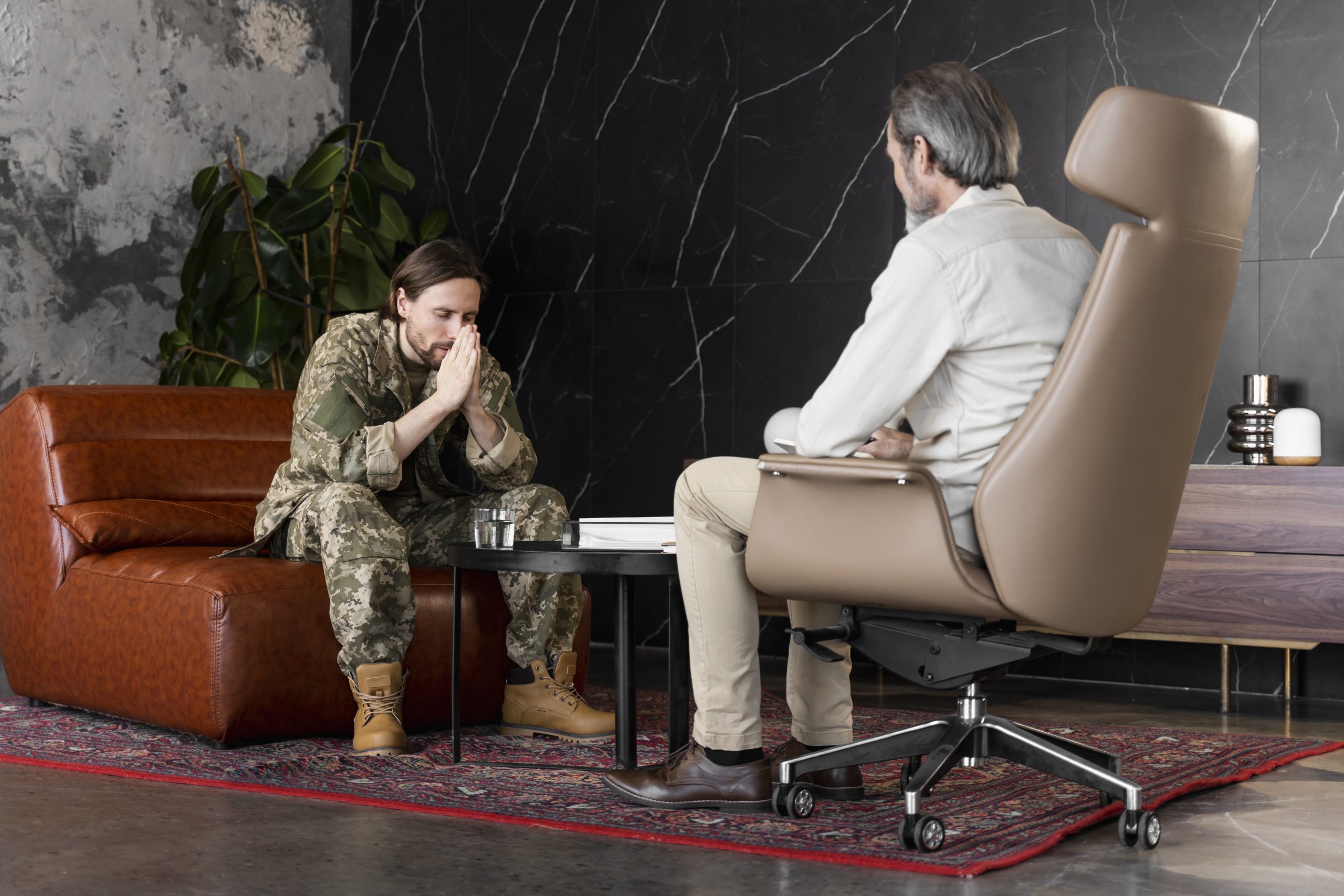

Previous research has shown that insomnia is widespread among people who are addicted to alcohol. Because alcohol affects sleep and can prolong insomnia symptoms, abstaining from alcohol is recommended as the first step toward better sleep. However, many patients continue to battle with sleep disruptions after abstinence, lowering the likelihood of treatment completion and increasing the risk of relapse.
“We wanted to test the feasibility and efficacy of CBT with individuals early in their treatment for alcohol use disorder,” said lead researcher Mary Beth Miller, PhD, assistant professor of psychiatry at the University of Missouri. “The typical standard of care is to wait to provide CBT for insomnia to patients with alcohol use disorder until they are abstinent from alcohol for four weeks. We wanted to see if CBT could improve insomnia symptoms and reduce alcohol-related harm before abstinence from alcohol use was established.”
The research team recruited 67 veterans in a VA addiction treatment program to engage in a randomized clinical trial in partnership with the Harry S. Truman Veterans Affairs hospital in Columbia, Missouri. The veterans met the criteria for sleeplessness and alcoholism. Participants were randomly randomized to either five weekly sessions of CBT or one single session of sleep hygiene treatment, which entailed a research therapist proposing adjustments to participants’ evening routines, such as coffee limitation.
CBT is an organized, non-medication-based therapy that teaches people about their symptoms, why they occur, and how to avoid them in the future. It is frequently used to treat mental health conditions such as depression or anxiety. Participants in CBT for insomnia learn how insomnia arises, the variables that maintain their symptoms, and how to avoid sleeplessness in the future.
CBT outperformed sleep hygiene in reducing insomnia severity in Miller’s trial, and this improvement in insomnia lowered individuals’ alcohol use, cravings, and negative alcohol-related behaviors over time. This is an important discovery since it contradicts existing advice to delay CBT insomnia treatment until patients have abstained from alcohol for four weeks or longer.
“CBT not only reduced insomnia symptoms among adults in early alcohol recovery – it also reduced the problems they experienced from drinking,” said Dr. Miller. “We shouldn’t wait until people are abstinent to provide evidence-based treatment. We should give them the treatment they need when they’re open to it.”
more recommended stories
 Nanoplastics in Brain Tissue and Neurological Risk
Nanoplastics in Brain Tissue and Neurological RiskKey Takeaways for HCPs Nanoplastics are.
 AI Predicts Chronic GVHD Risk After Stem Cell Transplant
AI Predicts Chronic GVHD Risk After Stem Cell TransplantKey Takeaways A new AI-driven tool,.
 Red Meat Consumption Linked to Higher Diabetes Odds
Red Meat Consumption Linked to Higher Diabetes OddsKey Takeaways Higher intake of total,.
 Pediatric Crohn’s Disease Microbial Signature Identified
Pediatric Crohn’s Disease Microbial Signature IdentifiedKey Points at a Glance NYU.
 Nanovaccine Design Boosts Immune Attack on HPV Tumors
Nanovaccine Design Boosts Immune Attack on HPV TumorsKey Highlights Reconfiguring peptide orientation significantly.
 High-Fat Diets Cause Damage to Metabolic Health
High-Fat Diets Cause Damage to Metabolic HealthKey Points Takeaways High-fat and ketogenic.
 Acute Ischemic Stroke: New Evidence for Neuroprotection
Acute Ischemic Stroke: New Evidence for NeuroprotectionKey Highlights A Phase III clinical.
 Statins Rarely Cause Side Effects, Large Trials Show
Statins Rarely Cause Side Effects, Large Trials ShowKey Points at a Glance Large.
 Anxiety Reduction and Emotional Support on Social Media
Anxiety Reduction and Emotional Support on Social MediaKey Summary Anxiety commonly begins in.
 Liquid Biopsy Measures Epigenetic Instability in Cancer
Liquid Biopsy Measures Epigenetic Instability in CancerKey Takeaways Johns Hopkins researchers developed.

Leave a Comment